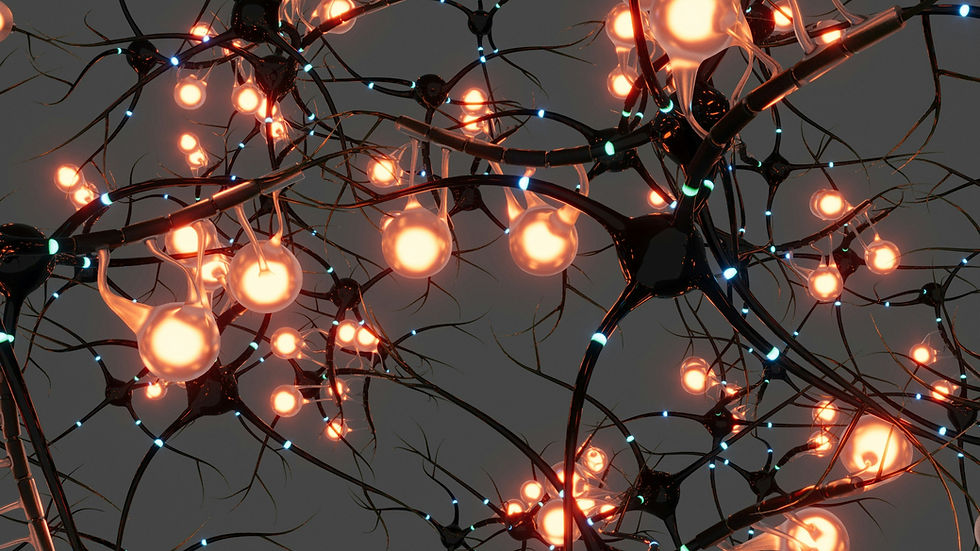Why Period Poverty Is a Global Crisis – and How You Can Help
- Aug 13, 2025
- 4 min read

Periods are a normal part of life – so why are they still surrounded by shame, silence, and danger for so many?
Period poverty is not just about hygiene; it is a deep-rooted issue of inequality.
All around the world, people who menstruate are being isolated by their periods. Many cannot afford menstrual products or access clean, safe spaces to manage their hygiene. This puts them at risk of infections and other health issues.
And yet, this crisis is constantly dismissed. In many places, stigma and shame silences many women and girls, making them feel invisible. This is why it is so important to raise awareness – by understanding the root causes, challenging cultural taboos, and finding meaningful ways to support those affected.
So, What Is Period Poverty?
At its core, period poverty is “the condition of being unable to afford or obtain adequate sanitary protection for use during menstruation” (period poverty…, 2025).
But it is more than just pads and tampons, it includes a lack of access to clean water, safe toilets, privacy, education, support, and proper disposal facilities. Without these, many are left to manage their periods alone, often without even understanding what their bodies are going through.
That is why period poverty is both a public health concern and a human rights issue.
As the World Health Organisation (WHO) puts it, “Menstrual health is a fundamental human right” (Menstrual health…, 2024).
But for far too many, managing their period is a battle. With no access to standard products, many resort to using unsafe alternatives such as old cloths and harsh chemicals.
As Charlotte Mallory (2023), writer at Concern Worldwide, puts it, these quick fixes do not only increase the “risk of infection” but can also lead to other long-term health issues such as “infertility or birth complications”.
Tackling period poverty, then, is about so much more than hygiene – it is about health equity, gender equality, and putting an end to cycles of discrimination.
A Global Issue With Local Impact
It is easy to think of period poverty as a problem limited to faraway places. But that is not the case.
Whilst it absolutely does affect vulnerable groups in lower-income countries, it also deeply affects poorer people in wealthier nations.
For example, in the UK period poverty has become a serious issue. Research by Plan International UK found that ”over one in four” girls are barely managing to afford menstrual products. Plus, even more shockingly, they discovered that 44% of girls do not know where to look for products and 38% do not know who to ask for help. (Dramatic increase…, 2022)
Rose Caldwell, the CEO of Plan International UK, pointed out a heartbreaking reality: that “half of girls who struggle to afford period products report cutting back on food to be able to buy them”. (Dramatic increase…, 2022)
This is a powerful reminder that period poverty is a serious and growing issue that is affecting communities everywhere. And until we acknowledge that, we cannot tackle it effectively.
Menstruation’s Many Stigmas
In many countries, periods are still treated as something, dirty, shameful, or even dangerous.
Take Nepal, for instance. In some communities, girls are still forced to follow chhaupadi – a practice rooted in the belief that menstruation brings misfortune, which forces them to live in “mud huts or sheds” whilst on their period. These places are usually unhygienic and unsafe – and shockingly, some girls have even died whilst stuck in them. (Chhaupadi and…, 2025)
One girl, Gauri, described having to “sleep below [a] goat shed”, stating that “whenever the goat urinated, it went all over [her] body”. (Chhaupadi and…, 2025)
Stories like this show just how damaging period stigma can be. That is why education is essential. When people of all ages learn about menstruation, fear and shame begin to fade and more supportive, safer communities can grow.
Who Is Helping–And How You Can Too
Thankfully, many organisations around the world are stepping up to fight period poverty and challenge harmful stigmas.
Some key organisations include:
The Red Box Project: Provides free period products for women and girls in education
Days for Girls: Attempts to break stigmas globally through education and the distribution of sustainable menstrual products
WaterAid: Works on improving sanitation and starting crucial conversations about periods
You do not have to be an activist or part of a large organisation to make a difference. Here are few simple ways that you can help:
Donate to the charities above, or any others that are fighting for change
Speak up – write to your MP about making period products free in your local schools and public spaces
Educate others – break the silence around periods by sharing what you have learnt
Support local drives – see if there are any donation efforts in your area that you could contribute to
The Bottom Line
Period poverty is a growing crisis – and it is time that we all treat it like one.
Tackling stigmas and ensuring access to safe, affordable menstrual care can truly transform the lives of countless women and girls.
References
Chhaupadi and menstruation taboos. (2023, January 31). ActionAid UK. https://www.actionaid.org.uk/our-work/period-poverty/chhaupadi-and-menstruation-taboos
Days for Girls. (n.d.). Our Mission. Days for Girls International. https://www.daysforgirls.org/our-mission/
Dramatic increase in girls cutting back on essentials to afford period products amidst cost-of-living crisis. (2022). Plan International UK. https://plan-uk.org/press/dramatic-increase-in-girls-cutting-back-on-essentials-to-afford-period-products?utm_source=chatgpt.com
Mallory, C. (2023, May 30). What is period poverty and how can we end it? Concern Worldwide. https://www.concern.org.uk/news/what-period-poverty-and-how-can-we-end-it
Menstrual health is a fundamental human right. (2024, August 15). Who.int; World Health Organization: WHO. https://www.who.int/europe/news/item/15-08-2024-menstrual-health-is-a-fundamental-human-right
period poverty, n. meanings, etymology and more | Oxford English Dictionary. (2025). Oed.com. https://doi.org/10.1093//OED//2918162454
Periods and menstrual hygiene | WaterAid UK. (n.d.). Www.wateraid.org. https://www.wateraid.org/uk/what-we-do/hygiene/periods
Red Box Project. (n.d.). Ensuring no young person misses out on their education because they have their period. Redboxproject.org. https://redboxproject.org/




Comments